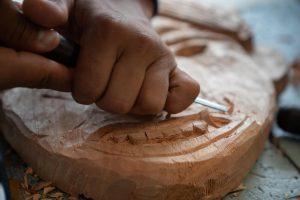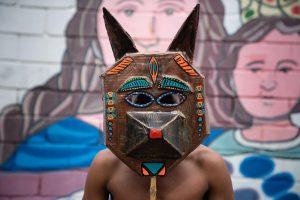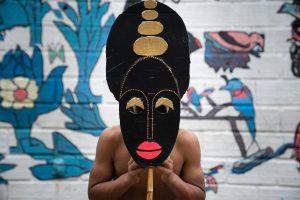WHY COLOMBIA ?
The Colombian conflict, in a country with a problematic topography of mountains and jungles, is infinitely complex. From university professors to charity leaders, via international cooperation agencies and human rights militants, we have heard the word “complejo – complicated” endlessly.
And this conflict is complicated, that’s the least we can say, in particular given its duration, over 50 years, and its source of funding: narcotics-trafficking and the large number of protagonists. Guerrillas from the FARC, EPL, ELN, M-19 (respectively: Marxists, Maoists, Guevarists and nationalists), indigenous guerrillas and those of African descent (who we never hear about) fight or have fought for reasons which have an ideological basis. Paramilitaries with their penchant for the extreme right united under the AUC banner (United Colombian Self-defence) and have now converted to BACRIM (meaning Bands of Emerging Criminals). They are keen to control the territories and specialise in drug-trafficking, prostitution and kidnapping, in particular.
Here in Colombia we don’t talk about civil war, but rather armed conflict. We thought we were arriving in a post-conflict country. That is not the case. Everyone agrees that whilst violence has abated, Colombia is “post-agreement” or in transition. In 2016, a peace treaty was finally signed between the government of Santos and the FARC (which transformed into the FARC political party), but clashes continue in certain regions between the governmental army and the ELN guerrillas, other paramilitary groups, the BACRIM and FARC dissidents.
ART-THERAPY : MORE THAN JUST AN ART WORKSHOP!
WAPA supports the two art therapy projects of its local partner, in the two reintegration centers welcoming demobilized adolescents from guerrillas and other armed groups: the” Arteuma “project in Cali and” Kuakumun “in Medellin.
Music sessions, dance, visual arts, theater, embroidery … much more than just a distraction from their schedule. They make it possible to develop both personal and social skills:
- get to know each other better, regain self-confidence, discover talents and explore new prospects for the future beyond carrying weapons;
- learn to control aggressiveness, develop tolerance, patience and concentration;
- heal his wounds and go ahead, learn to build instead of to break down;
- work in a team, respect differences, enter into relationships with others without rivalry;
- overcome their embarrassment;
- create friendships …
These sessions are accompanied by outings and artistic events: presentations of artistic work to other young people in society, meeting with professional artists, visit to a museum … These exchanges are beneficial to them, make them proud and allow them to be considered other than as ex-child soldiers.




